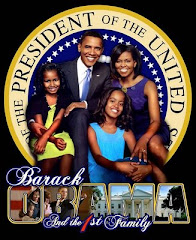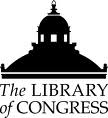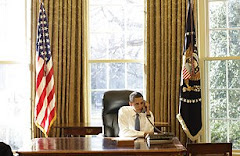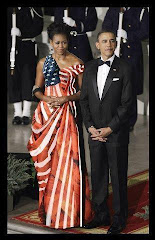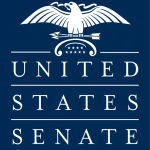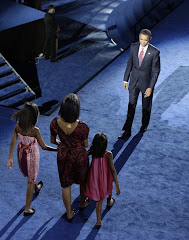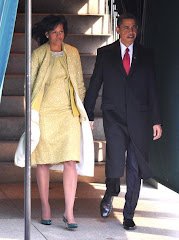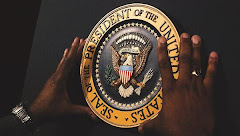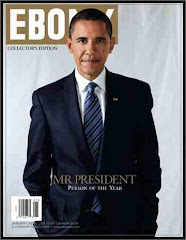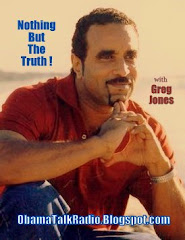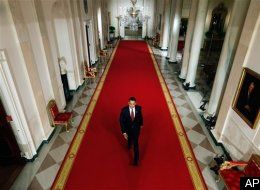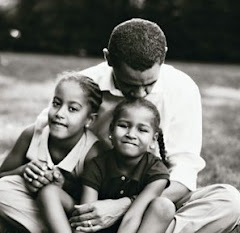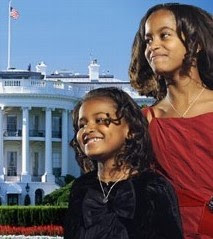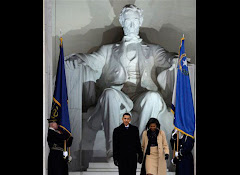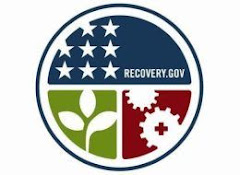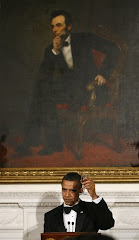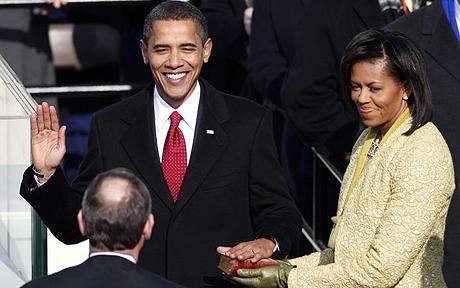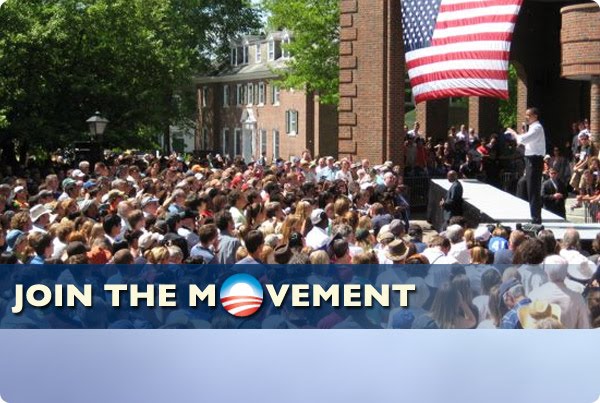THE WHITE HOUSE
Office of the Press Secretary
________________________________________________________________
May 17, 2009
Remarks of President Barack Obama
Notre Dame Commencement
Sunday, May 17, 2009
Notre Dame, Indiana
Thank you, Father Jenkins for that generous introduction. You are doing an outstanding job as president of this fine institution, and your continued and courageous commitment to honest, thoughtful dialogue is an inspiration to us all.
Good afternoon Father Hesburgh, Notre Dame trustees, faculty, family, friends, and the class of 2009. I am honored to be here today, and grateful to all of you for allowing me to be part of your graduation.
I want to thank you for this honorary degree. I know it has not been without controversy. I don’t know if you’re aware of this, but these honorary degrees are apparently pretty hard to come by. So far I’m only 1 for 2 as President. Father Hesburgh is 150 for 150. I guess that’s better. Father Ted, after the ceremony, maybe you can give me some pointers on how to boost my average.
I also want to congratulate the class of 2009 for all your accomplishments. And since this is Notre Dame, I mean both in the classroom and in the competitive arena. We all know about this university’s proud and storied football team, but I also hear that Notre Dame holds the largest outdoor 5-on-5 basketball tournament in the world – Bookstore Basketball.
Now this excites me. I want to congratulate the winners of this year’s tournament, a team by the name of “Hallelujah Holla Back.” Well done. Though I have to say, I am personally disappointed that the “Barack O’Ballers” didn’t pull it out. Next year, if you need a 6’2” forward with a decent jumper, you know where I live.
Every one of you should be proud of what you have achieved at this institution. One hundred and sixty three classes of Notre Dame graduates have sat where you are today. Some were here during years that simply rolled into the next without much notice or fanfare – periods of relative peace and prosperity that required little by way of sacrifice or struggle.
You, however, are not getting off that easy. Your class has come of age at a moment of great consequence for our nation and the world – a rare inflection point in history where the size and scope of the challenges before us require that we remake our world to renew its promise; that we align our deepest values and commitments to the demands of a new age. It is a privilege and a responsibility afforded to few generations – and a task that you are now called to fulfill.
This is the generation that must find a path back to prosperity and decide how we respond to a global economy that left millions behind even before this crisis hit – an economy where greed and short-term thinking were too often rewarded at the expense of fairness, and diligence, and an honest day’s work.
We must decide how to save God’s creation from a changing climate that threatens to destroy it. We must seek peace at a time when there are those who will stop at nothing to do us harm, and when weapons in the hands of a few can destroy the many. And we must find a way to reconcile our ever-shrinking world with its ever-growing diversity – diversity of thought, of culture, and of belief.
In short, we must find a way to live together as one human family.
It is this last challenge that I’d like to talk about today. For the major threats we face in the 21st century – whether it’s global recession or violent extremism; the spread of nuclear weapons or pandemic disease – do not discriminate. They do not recognize borders. They do not see color. They do not target specific ethnic groups.
Moreover, no one person, or religion, or nation can meet these challenges alone. Our very survival has never required greater cooperation and understanding among all people from all places than at this moment in history.
Unfortunately, finding that common ground – recognizing that our fates are tied up, as Dr. King said, in a “single garment of destiny” – is not easy. Part of the problem, of course, lies in the imperfections of man – our selfishness, our pride, our stubbornness, our acquisitiveness, our insecurities, our egos; all the cruelties large and small that those of us in the Christian tradition understand to be rooted in original sin. We too often seek advantage over others. We cling to outworn prejudice and fear those who are unfamiliar. Too many of us view life only through the lens of immediate self-interest and crass materialism; in which the world is necessarily a zero-sum game. The strong too often dominate the weak, and too many of those with wealth and with power find all manner of justification for their own privilege in the face of poverty and injustice. And so, for all our technology and scientific advances, we see around the globe violence and want and strife that would seem sadly familiar to those in ancient times.
We know these things; and hopefully one of the benefits of the wonderful education you have received is that you have had time to consider these wrongs in the world, and grown determined, each in your own way, to right them. And yet, one of the vexing things for those of us interested in promoting greater understanding and cooperation among people is the discovery that even bringing together persons of good will, men and women of principle and purpose, can be difficult.
The soldier and the lawyer may both love this country with equal passion, and yet reach very different conclusions on the specific steps needed to protect us from harm. The gay activist and the evangelical pastor may both deplore the ravages of HIV/AIDS, but find themselves unable to bridge the cultural divide that might unite their efforts. Those who speak out against stem cell research may be rooted in admirable conviction about the sacredness of life, but so are the parents of a child with juvenile diabetes who are convinced that their son’s or daughter’s hardships can be relieved.
The question, then, is how do we work through these conflicts? Is it possible for us to join hands in common effort? As citizens of a vibrant and varied democracy, how do we engage in vigorous debate? How does each of us remain firm in our principles, and fight for what we consider right, without demonizing those with just as strongly held convictions on the other side?
Nowhere do these questions come up more powerfully than on the issue of abortion.
As I considered the controversy surrounding my visit here, I was reminded of an encounter I had during my Senate campaign, one that I describe in a book I wrote called The Audacity of Hope. A few days after I won the Democratic nomination, I received an email from a doctor who told me that while he voted for me in the primary, he had a serious concern that might prevent him from voting for me in the general election. He described himself as a Christian who was strongly pro-life, but that’s not what was preventing him from voting for me.
What bothered the doctor was an entry that my campaign staff had posted on my website – an entry that said I would fight “right-wing ideologues who want to take away a woman’s right to choose.” The doctor said that he had assumed I was a reasonable person, but that if I truly believed that every pro-life individual was simply an ideologue who wanted to inflict suffering on women, then I was not very reasonable. He wrote, “I do not ask at this point that you oppose abortion, only that you speak about this issue in fair-minded words.”
Fair-minded words.
After I read the doctor’s letter, I wrote back to him and thanked him. I didn’t change my position, but I did tell my staff to change the words on my website. And I said a prayer that night that I might extend the same presumption of good faith to others that the doctor had extended to me. Because when we do that – when we open our hearts and our minds to those who may not think like we do or believe what we do – that’s when we discover at least the possibility of common ground.
That’s when we begin to say, “Maybe we won’t agree on abortion, but we can still agree that this is a heart-wrenching decision for any woman to make, with both moral and spiritual dimensions.
So let’s work together to reduce the number of women seeking abortions by reducing unintended pregnancies, and making adoption more available, and providing care and support for women who do carry their child to term. Let’s honor the conscience of those who disagree with abortion, and draft a sensible conscience clause, and make sure that all of our health care policies are grounded in clear ethics and sound science, as well as respect for the equality of women.”
Understand – I do not suggest that the debate surrounding abortion can or should go away. No matter how much we may want to fudge it – indeed, while we know that the views of most Americans on the subject are complex and even contradictory – the fact is that at some level, the views of the two camps are irreconcilable. Each side will continue to make its case to the public with passion and conviction. But surely we can do so without reducing those with differing views to caricature.
Open hearts. Open minds. Fair-minded words.
It’s a way of life that has always been the Notre Dame tradition. Father Hesburgh has long spoken of this institution as both a lighthouse and a crossroads. The lighthouse that stands apart, shining with the wisdom of the Catholic tradition, while the crossroads is where “…differences of culture and religion and conviction can co-exist with friendship, civility, hospitality, and especially love.” And I want to join him and Father Jenkins in saying how inspired I am by the maturity and responsibility with which this class has approached the debate surrounding today’s ceremony.
This tradition of cooperation and understanding is one that I learned in my own life many years ago – also with the help of the Catholic Church.
I was not raised in a particularly religious household, but my mother instilled in me a sense of service and empathy that eventually led me to become a community organizer after I graduated college. A group of Catholic churches in Chicago helped fund an organization known as the Developing Communities Project, and we worked to lift up South Side neighborhoods that had been devastated when the local steel plant closed.
It was quite an eclectic crew. Catholic and Protestant churches. Jewish and African-American organizers. Working-class black and white and Hispanic residents. All of us with different experiences. All of us with different beliefs. But all of us learned to work side by side because all of us saw in these neighborhoods other human beings who needed our help – to find jobs and improve schools. We were bound together in the service of others.
And something else happened during the time I spent in those neighborhoods. Perhaps because the church folks I worked with were so welcoming and understanding; perhaps because they invited me to their services and sang with me from their hymnals; perhaps because I witnessed all of the good works their faith inspired them to perform, I found myself drawn – not just to work with the church, but to be in the church. It was through this service that I was brought to Christ.
At the time, Cardinal Joseph Bernardin was the Archbishop of Chicago. For those of you too young to have known him, he was a kind and good and wise man. A saintly man. I can still remember him speaking at one of the first organizing meetings I attended on the South Side. He stood as both a lighthouse and a crossroads – unafraid to speak his mind on moral issues ranging from poverty, AIDS, and abortion to the death penalty and nuclear war. And yet, he was congenial and gentle in his persuasion, always trying to bring people together; always trying to find common ground. Just before he died, a reporter asked Cardinal Bernardin about this approach to his ministry. And he said, “You can’t really get on with preaching the Gospel until you’ve touched minds and hearts.”
My heart and mind were touched by the words and deeds of the men and women I worked alongside with in Chicago. And I’d like to think that we touched the hearts and minds of the neighborhood families whose lives we helped change. For this, I believe, is our highest calling.
You are about to enter the next phase of your life at a time of great uncertainty. You will be called upon to help restore a free market that is also fair to all who are willing to work; to seek new sources of energy that can save our planet; to give future generations the same chance that you had to receive an extraordinary education. And whether as a person drawn to public service, or someone who simply insists on being an active citizen, you will be exposed to more opinions and ideas broadcast through more means of communications than have ever existed before. You will hear talking heads scream on cable, read blogs that claim definitive knowledge, and watch politicians pretend to know what they’re talking about. Occasionally, you may also have the great fortune of seeing important issues debated by well-intentioned, brilliant minds. In fact, I suspect that many of you will be among those bright stars.
In this world of competing claims about what is right and what is true, have confidence in the values with which you’ve been raised and educated. Be unafraid to speak your mind when those values are at stake. Hold firm to your faith and allow it to guide you on your journey. Stand as a lighthouse.
But remember too that the ultimate irony of faith is that it necessarily admits doubt. It is the belief in things not seen. It is beyond our capacity as human beings to know with certainty what God has planned for us or what He asks of us, and those of us who believe must trust that His wisdom is greater than our own.
This doubt should not push us away from our faith. But it should humble us. It should temper our passions, and cause us to be wary of self-righteousness. It should compel us to remain open, and curious, and eager to continue the moral and spiritual debate that began for so many of you within the walls of Notre Dame. And within our vast democracy, this doubt should remind us to persuade through reason, through an appeal whenever we can to universal rather than parochial principles, and most of all through an abiding example of good works, charity, kindness, and service that moves hearts and minds.
For if there is one law that we can be most certain of, it is the law that binds people of all faiths and no faith together. It is no coincidence that it exists in Christianity and Judaism; in Islam and Hinduism; in Buddhism and humanism. It is, of course, the Golden Rule – the call to treat one another as we wish to be treated. The call to love. To serve. To do what we can to make a difference in the lives of those with whom we share the same brief moment on this Earth.
So many of you at Notre Dame – by the last count, upwards of 80% -- have lived this law of love through the service you’ve performed at schools and hospitals; international relief agencies and local charities. That is incredibly impressive, and a powerful testament to this institution. Now you must carry the tradition forward. Make it a way of life. Because when you serve, it doesn’t just improve your community, it makes you a part of your community. It breaks down walls. It fosters cooperation. And when that happens – when people set aside their differences to work in common effort toward a common good; when they struggle together, and sacrifice together, and learn from one another – all things are possible.
After all, I stand here today, as President and as an African-American, on the 55th anniversary of the day that the Supreme Court handed down the decision in Brown v. the Board of Education. Brown was of course the first major step in dismantling the “separate but equal” doctrine, but it would take a number of years and a nationwide movement to fully realize the dream of civil rights for all of God’s children. There were freedom rides and lunch counters and Billy clubs, and there was also a Civil Rights Commission appointed by President Eisenhower. It was the twelve resolutions recommended by this commission that would ultimately become law in the Civil Rights Act of 1964.
There were six members of the commission. It included five whites and one African-American; Democrats and Republicans; two Southern governors, the dean of a Southern law school, a Midwestern university president, and your own Father Ted Hesburgh, President of Notre Dame. They worked for two years, and at times, President Eisenhower had to intervene personally since no hotel or restaurant in the South would serve the black and white members of the commission together. Finally, when they reached an impasse in Louisiana, Father Ted flew them all to Notre Dame’s retreat in Land O’Lakes, Wisconsin, where they eventually overcame their differences and hammered out a final deal.
Years later, President Eisenhower asked Father Ted how on Earth he was able to broker an agreement between men of such different backgrounds and beliefs. And Father Ted simply said that during their first dinner in Wisconsin, they discovered that they were all fishermen. And so he quickly readied a boat for a twilight trip out on the lake. They fished, and they talked, and they changed the course of history.
I will not pretend that the challenges we face will be easy, or that the answers will come quickly, or that all our differences and divisions will fade happily away. Life is not that simple. It never has been.
But as you leave here today, remember the lessons of Cardinal Bernardin, of Father Hesburgh, of movements for change both large and small. Remember that each of us, endowed with the dignity possessed by all children of God, has the grace to recognize ourselves in one another; to understand that we all seek the same love of family and the same fulfillment of a life well-lived. Remember that in the end, we are all fishermen.
If nothing else, that knowledge should give us faith that through our collective labor, and God’s providence, and our willingness to shoulder each other’s burdens, America will continue on its precious journey towards that more perfect union. Congratulations on your graduation, may God Bless you, and may God Bless the United States of America.







